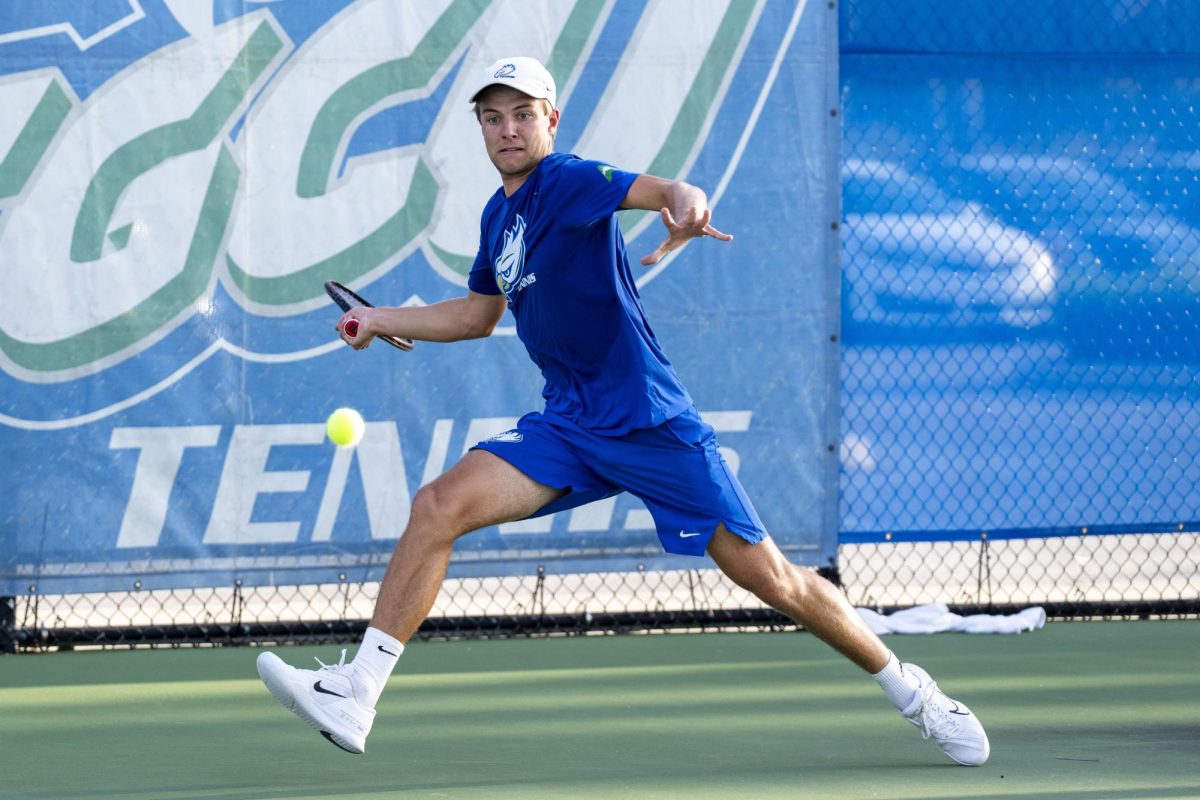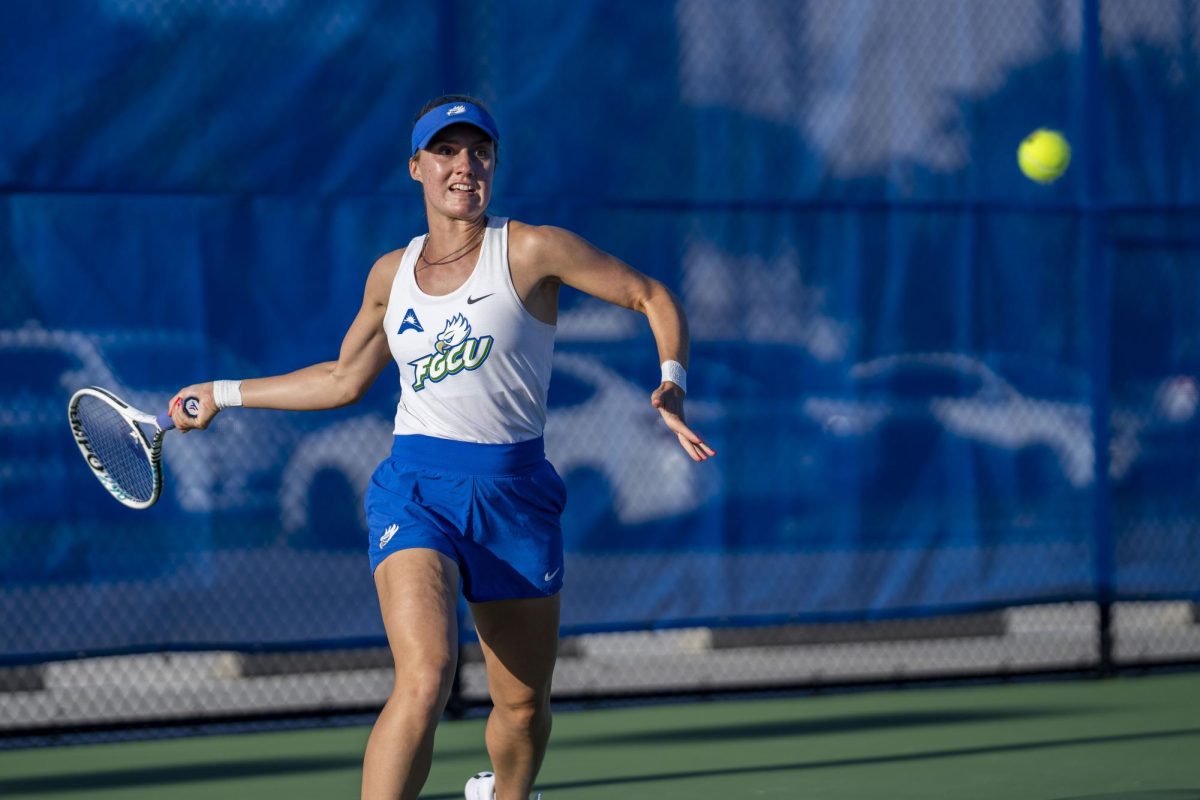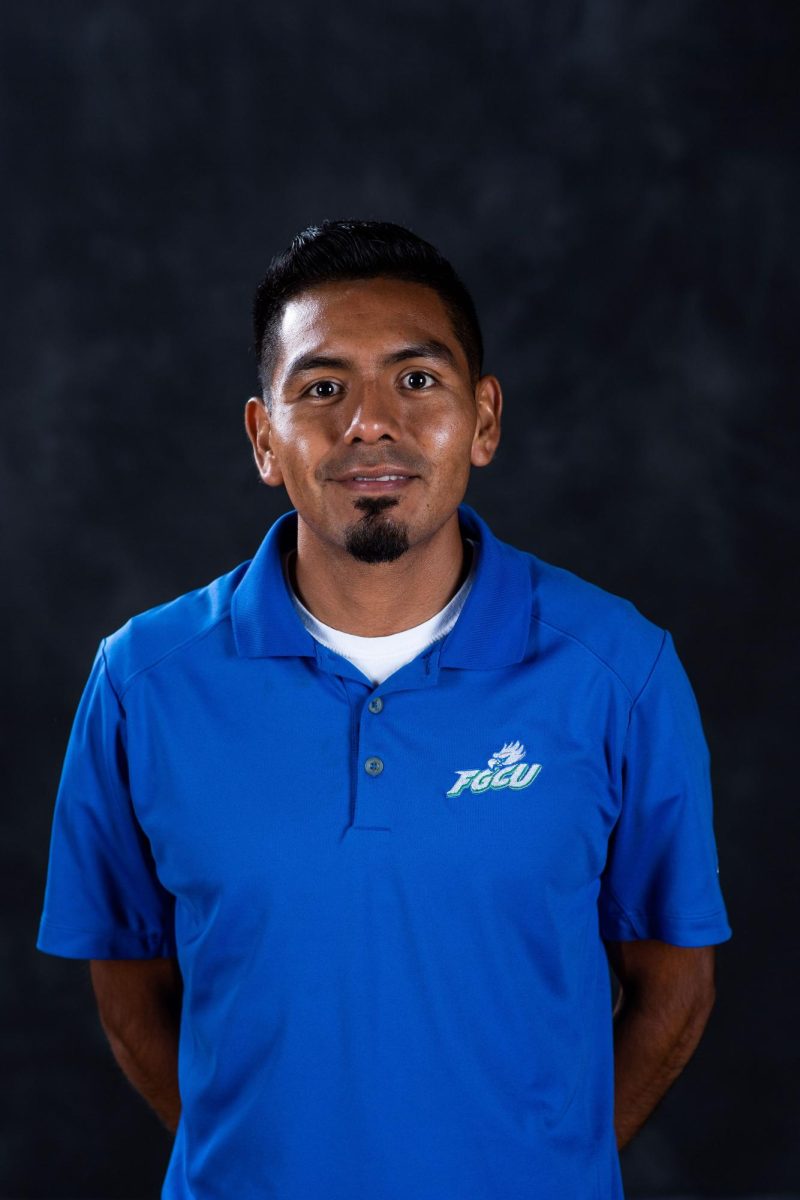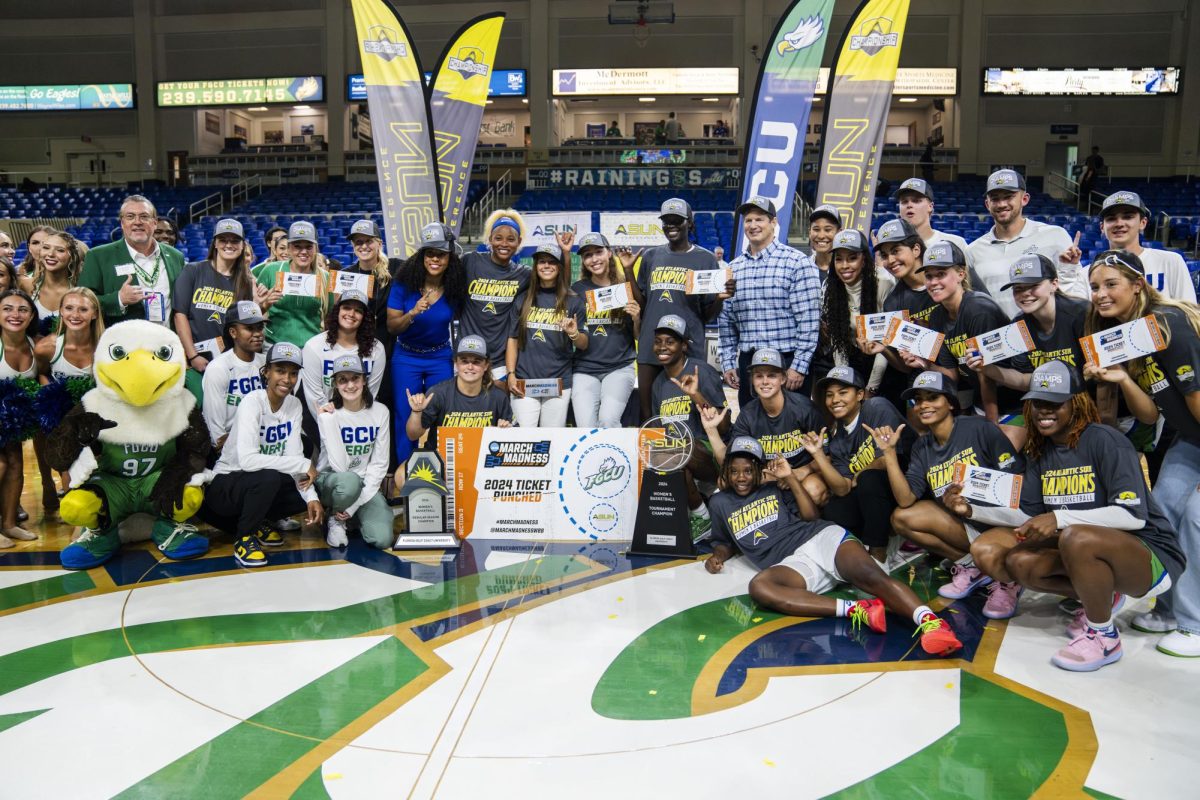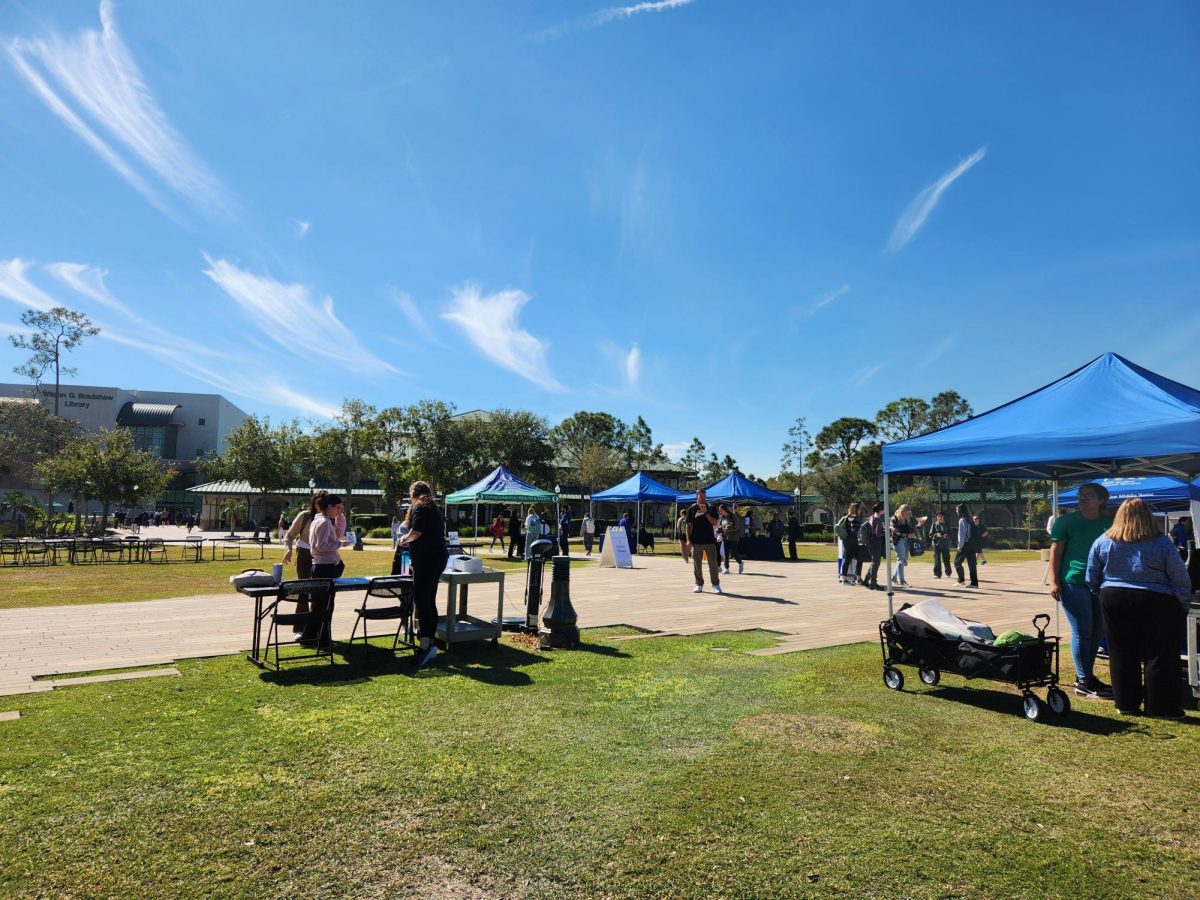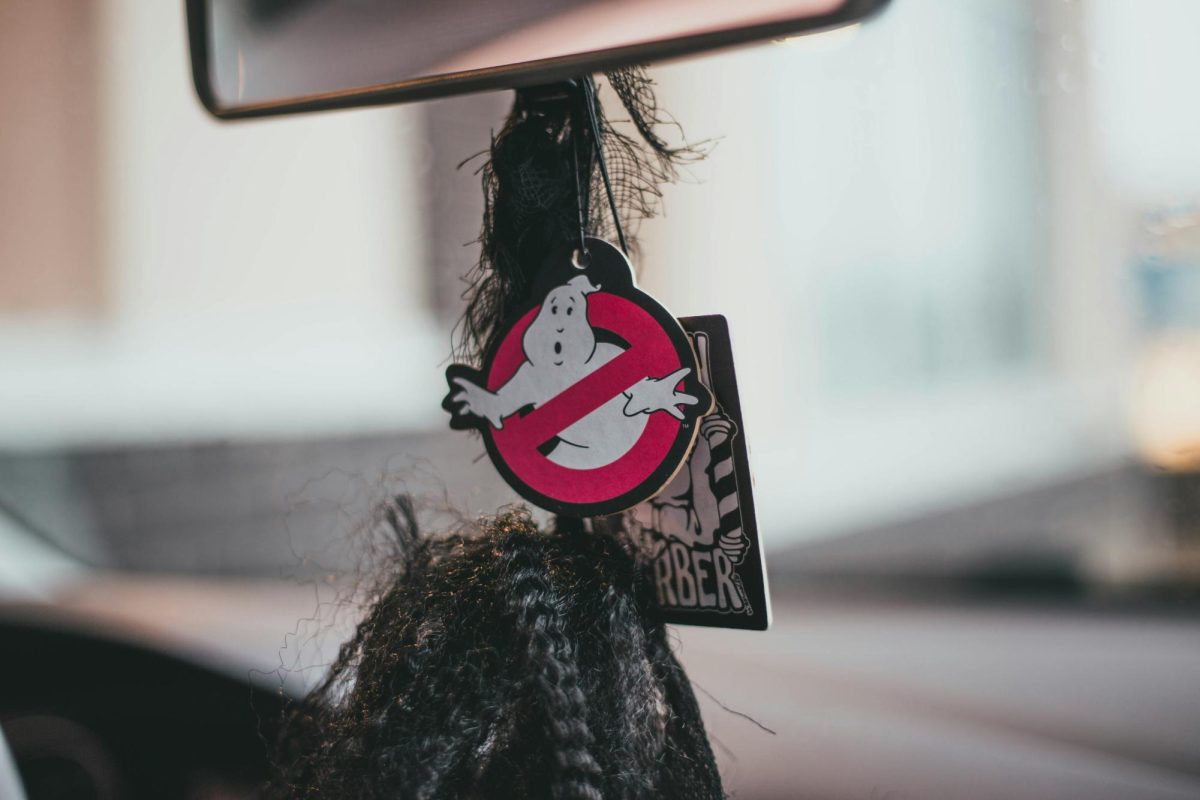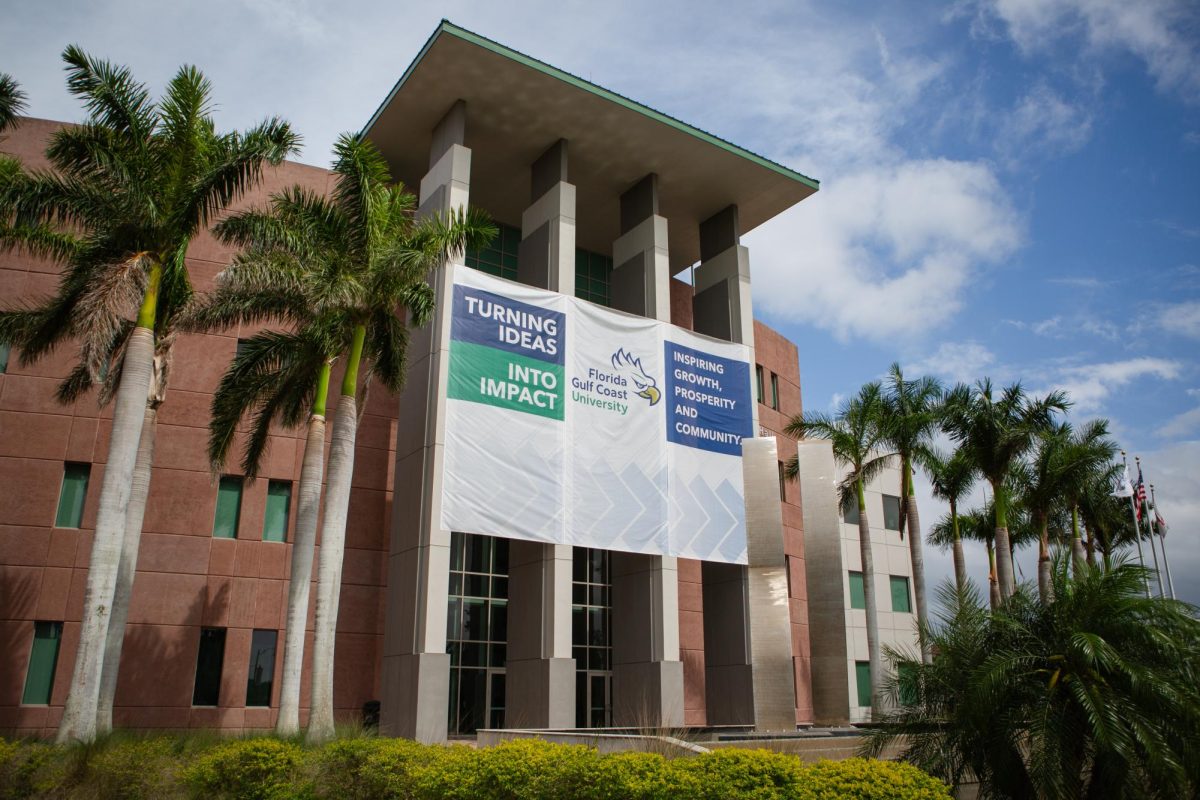If my first two semesters at college have taught me anything, it’s that age does not define skill level, and the stigma surrounding younger people for being unexperienced or less skilled than the older generation is patronizing to the younger generation.
A few weeks ago, I attended the FGCU Writing Awards with a friend of mine who is a member of the ACE program.
Even though she’s only 16 years old, she beat out all of her competitors and won first place in the creative nonfiction category.
A few weeks ago, I attended the FGCU Writing Awards with a friend of mine who is a member of the ACE program.
Even though she’s only 16 years old, she beat out all of her competitors and won first place in the creative nonfiction category.
Her skill level was just as good, if not better, than everyone else’s in the room. Yet, as soon as she mentions her age, people seem surprised that someone so young could possess such skill in writing.
It seems to be a pattern that whenever a young person achieves something great or wins a prestigious award, his or her age becomes a big deal to adults.
Sure, experience comes with age, but a younger person isn’t any less skilled in an area than an older one.
My part-time job is at a convention center, and out of the various events that come there, some of them include tournaments like taekwondo, judo and karate.
The competitors are split up by age groups, but I’ve seen groups with 10-year-old children and groups with 40-year-old men. Even with the 30-year gap, it’s not the age that defines the skill; it’s the color of the belt.
It seems to be a pattern that whenever a young person achieves something great or wins a prestigious award, his or her age becomes a big deal to adults.
Sure, experience comes with age, but a younger person isn’t any less skilled in an area than an older one.
My part-time job is at a convention center, and out of the various events that come there, some of them include tournaments like taekwondo, judo and karate.
The competitors are split up by age groups, but I’ve seen groups with 10-year-old children and groups with 40-year-old men. Even with the 30-year gap, it’s not the age that defines the skill; it’s the color of the belt.
Yes, the more time you spend doing something, the more you’re going to learn and the better you’re going to get. But just because you’re older doesn’t mean you’re automatically going to be better at something than someone who is five or 10 years younger than you.
From a student perspective, this concept can be seen in group work assigned for classes.
From a student perspective, this concept can be seen in group work assigned for classes.
Everyone in the group is a student in the same class, but those who invest their time in the presentation or project will be more proficient and experienced with it than group members who slack off and don’t contribute their time and effort at all.
Same goes for the world outside of school.
People who are passionate about their careers or hobbies and dedicate their time and efforts to practicing with and spending time in their fields are going to be more experienced than those who don’t. Age plays virtually no role.
Same goes for the world outside of school.
People who are passionate about their careers or hobbies and dedicate their time and efforts to practicing with and spending time in their fields are going to be more experienced than those who don’t. Age plays virtually no role.
If a student studying business had several internships at companies over his or her college career and is trying to get the same job in a company as a middle-aged man who didn’t study business in college and has no previous experience in a corporate environment, then the younger person is more experienced, qualified and, presumably, more skilled for the job.
It’s as simple as that.
There is the question of natural skill. We all have that friend who can memorize an entire lecture without taking notes, ace a test without studying and deliver a presentation without practicing.
It’s as simple as that.
There is the question of natural skill. We all have that friend who can memorize an entire lecture without taking notes, ace a test without studying and deliver a presentation without practicing.
But natural skill will never improve if hard work and dedication isn’t included.
Those who are actively seeking experience and working hard to improve their skills will not only do that, but they’ll also unlock new skills along the way.
Our time in college is the time for us youngsters to gather all the experience we can and reinforce our skills so that by the time we get into the “real world,” our ages won’t even matter when our abilities are pulled into question.
Those who are actively seeking experience and working hard to improve their skills will not only do that, but they’ll also unlock new skills along the way.
Our time in college is the time for us youngsters to gather all the experience we can and reinforce our skills so that by the time we get into the “real world,” our ages won’t even matter when our abilities are pulled into question.
Story continues below advertisement







